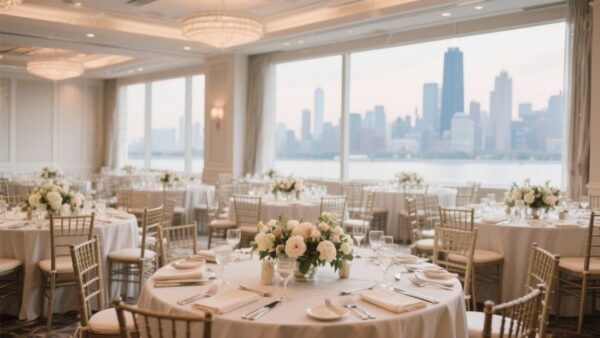Stay ahead of the curve with the latest event planning trends 2026. From hybrid events to sustainability and personalization, these trends will help planners create unforgettable experiences and stay competitive.
1. Hybrid Events Are Here to Stay
The popularity of hybrid events is soaring. Moreover, they combine in-person and virtual experiences, allowing organizers to reach broader audiences. Additionally, hybrid events enable attendees to participate from anywhere, making events more inclusive and flexible.
Companies searching for a event planner near me can leverage hybrid formats to maximize engagement. Platforms like Zoom, Hopin, and Remo make managing these events seamless.
2. Personalization Is Key
Attendees expect experiences tailored to their interests. Consequently, personalized agendas, customized networking opportunities, and curated content are essential. For example, wedding planners in the USA personalize decor, menus, and entertainment to meet each couple’s preferences. Read more about wedding planners in Chicago.
Corporate events also benefit from personalized experiences. Customized swag, targeted sessions, and interactive workshops increase engagement and attendee satisfaction.
3. Sustainability Takes Center Stage
Indeed, sustainable event planning is no longer optional. Eco-conscious attendees now expect venues and events to minimize environmental impact. Planners reduce plastic usage, source local products, and select green-certified venues.
For instance, choosing biodegradable cutlery, reducing printed materials, and using reusable decor reflects a commitment to sustainability. Therefore, events resonate with environmentally-conscious audiences. Learn more about sustainable luxury events.
4. Tech Integration Enhances Experiences
Technology is no longer a luxury; it is essential. In fact, apps, AI tools, and virtual reality enhance engagement and streamline operations. Planners can track registrations, analyze feedback, and optimize attendee journeys.
Event planning services, like professional event planning services, now include tech consultations. As a result, attendees enjoy seamless experiences from check-in to post-event follow-ups.
5. Wellness and Mindfulness Integration
Event planners are prioritizing wellness in 2026. Consequently, mindfulness breaks, healthy catering, and wellness workshops are becoming standard. Participants feel energized and focused, enhancing the overall experience.
Corporate and social events alike integrate wellness. For example, planners design programs that include yoga sessions, meditation corners, or wellness-inspired catering. Check event planning tips for more on mindfulness integration.
6. Experiential Marketing and Interactive Engagement
Experiential marketing dominates event planning trends 2026. Attendees now expect hands-on experiences, live demonstrations, and interactive workshops. Thus, immersive participation strengthens brand connections.
Planners use creative setups and event decor to engage participants actively. Hybrid and in-person events benefit equally from these interactive strategies.
7. Micro-Events and Intimate Gatherings
Micro-events are increasingly popular. Additionally, smaller gatherings allow for a highly personalized experience, deeper networking, and better engagement. From boutique weddings to private corporate dinners, planners ensure every detail is perfect.
Day-of coordinators guarantee smooth operations and memorable experiences. Learn how day-of coordinators make events stress-free and exceptional.
8. Focus on Health and Safety
Even in 2026, health and safety remain vital. Organizers implement contactless check-ins, sanitation stations, and crowd management strategies. Therefore, attendees feel secure while enjoying the event.
Professional planners, such as those highlighted in this guide, ensure every health protocol is professionally managed.
9. Data-Driven Decision Making
Analytics is a game-changer in 2026. Planners track engagement, session attendance, and feedback to improve future events. Moreover, real-time data allows for quick adjustments during live events.
Using data effectively enhances attendee satisfaction, boosts ROI, and informs strategic planning for upcoming events.
10. Flexibility and Agile Planning
Adaptability is critical. With changing regulations and audience expectations, agile planning ensures events succeed despite unexpected challenges. Consequently, professional corporate event management services provide structured yet flexible approaches. Learn more about corporate event management.
Final Thoughts
Event planning trends 2026 emphasize flexibility, personalization, sustainability, wellness, and technology. By following these trends, planners can create unforgettable experiences that resonate with attendees.
Explore more insights at Plush Event Planning and check their services, gallery, and contact page to plan your next event seamlessly.

